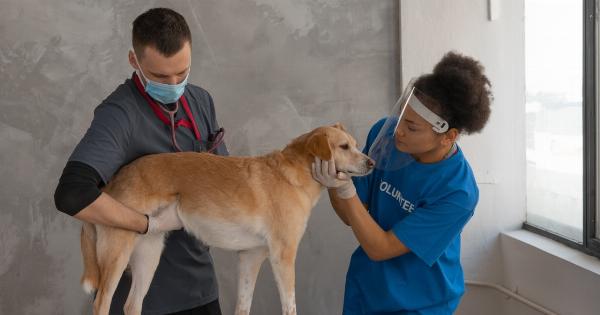Pets play a huge role in our lives, keeping us company when we’re lonely and offering unconditional love no matter what. But pets aren’t just great companions for adults, they’re also fantastic for children.
In fact, numerous studies have shown that children who grow up around pets have better physical and mental health, and tend to have higher levels of empathy and emotional intelligence.
From dogs and cats to rabbits and guinea pigs, here are 10 ways that pets can benefit children’s health.
1. Reducing Anxiety and Stress
Research has shown that just a few minutes spent playing with a pet can help reduce stress and anxiety levels in both adults and children.
Pets provide a sense of comfort and security, and the act of petting a soft and furry animal can have a calming effect on both the mind and body.
2. Building Strong Immune Systems
Kids who grow up with pets tend to have stronger immune systems and are less prone to allergies and asthma.
Exposure to pet dander and other allergens at an early age can help build up a child’s immune system, making them less likely to develop allergies in the future.
3. Boosting Physical Activity
Many pets, like dogs, require regular exercise. This means that kids with pets are often more physically active, as they’ll have to take their furry friend for a walk or play outside with them.
This can help improve cardiovascular health, increase muscle mass, and reduce the risk of obesity and other health problems.
4. Improving Social Skills
Pets can also help improve a child’s social skills.
This is because having a pet can provide a sense of responsibility and encourage children to engage in social activities, like going to the dog park or participating in a pet-related club or activity. This can help children develop confidence, communication skills, and the ability to form strong relationships with others.
5. Developing Empathy and Emotional Intelligence
Pets can also help teach children empathy and emotional intelligence. This is because animals have their own unique personalities, emotions, and needs, and children who grow up around pets will learn to recognize and respect these traits.
By caring for a pet, children can learn to be more in tune with their own emotions and the emotions of others, helping them to better understand and connect with those around them.
6. Providing Companionship
One of the most obvious benefits of having a pet is the companionship they provide. Pets are always there for us when we need them, offering love and support without judgment.
This can be especially important for children, who may be going through difficult times or feeling isolated from their peers.
7. Teaching Responsibility
Having a pet can be a great way to teach children responsibility.
Pets require regular feeding, grooming, exercise, and medical care, and children who take on these responsibilities will learn important life skills like time management, organization, and prioritization. They’ll also learn about the consequences of their actions, which can help them develop a strong sense of accountability.
8. Encouraging Tactile Reinforcement
Pets are great for encouraging tactile reinforcement in children. Tactile reinforcement is the act of providing deep pressure or touch to help calm and soothe the nervous system, and pets are the perfect tool for this.
Petting a soft and furry animal can help regulate a child’s sensory system and reduce stress and anxiety.
9. Fostering Creativity and Imagination
Pets can also be great for fostering creativity and imagination in children. Pets are a never-ending source of inspiration for artwork, stories, and imaginative play.
Kids can create their own fantasy worlds based on their pets, helping to strengthen their creativity and imaginative thinking skills.
10. Providing Unconditional Love
Finally, perhaps the greatest benefit of having a pet is the unconditional love they provide. Pets love us no matter what, offering support, comfort, and companionship without any expectation of reward.
This can be incredibly valuable for children, who may be going through difficult times or struggling with self-esteem issues.
Conclusion
Pets may be a lot of work, but the benefits they provide are well worth the effort. From reducing anxiety and stress to fostering creativity and imagination, pets offer a multitude of benefits for children’s health and development.
So if you’re thinking about adding a furry friend to your family, don’t hesitate!.































